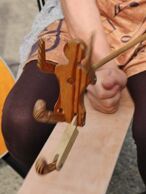 Paul’s loss was a huge blow to all of us, but as with everything else, we had to move on. My children were devastated, especially my youngest who was sixteen years old. He was closer to his dad than to anyone else. I wasn’t able to fill those shoes and didn’t know how to help him through it, though I tried. I offered grief counseling, which he refused, and tried to get other male friends and family to step in for support. In spite of my efforts, he sank deeper and deeper into drugs and depression. He rarely came out of his room, and when he did, he was surly and curt. We no longer hung out the way we once did. Although I knew that some of that was his age, I worried, nonetheless. Then, he found his first love, and I started to be relieved. Maybe this was just what he needed to help him through this hard time. I continued on with my music, getting gigs where I could and stretching out into new instruments and new opportunities. I’m not sure I would ever have played other instruments if not for Dick Kavanaugh. He was the one who first handed me a mandolin and asked me to play it and was always bringing new instruments into the house. We had fiddles, mandolins, banjos, ukuleles, recorders, tin whistles and flutes of all kinds, lots of guitars and more. He told me it was his retirement plan. He would fix them up and resell them when he didn’t want to work any longer. Then one day, he brought home an instrument I’d never seen before. It was a mountain dulcimer. I was amazed to discover that it was a traditional American instrument. How could I not know about this instrument? That’s when I realized that we were not taught American culture in school. I already knew that we were kept ignorant of Native American culture and of much historical truth, being given a very sanitized version of history, but this was Southern Appalachian. Why wasn’t this taught in school? I resolved to learn to play it and equally resolved to teach children about our traditional American musical culture. I started bringing a limberjack to all of my children’s shows and to schools and libraries. I already knew about the limberjack from my childhood. They are also popular among French Canadians, which was my dad’s heritage, and he carved his own which he called a “Dancing Dan.” They’re a wooden puppet with hinged limbs, often at the shoulders, elbows, hips and knees. They’re attached to a stick coming horizontally out of their back. There is a thin pine board that you sit on and rest the limberjack’s feet on the end. As you sing your song, you hit the board with your hand or fist in time to the music, and the limberjack keeps the beat with his feet as his arms and legs flail about in rhythm to the music. It’s always a big hit with folks of all ages. Once I learned to play the dulcimer well enough, I brought that as well, always explaining that it is a traditional instrument. It makes me feel sad that we live in this country, growing up not knowing about our rich traditions. I worked hard at learning the dulcimer. I went to Old Time jams, determined to know more about that music. It’s very hypnotic and just carries you away. I found I could play the same tune for hours and not get bored because it took me to another time and place. However, I’ve never been consistent about practicing and as with everything else, I got lazy and mostly stuck to playing chords. I’ve always looked at my string instruments as backup for my voice. Voice has always been my main instrument and takes precedence over everything else. Unfortunately, that attitude caused me to neglect the other instruments. However, I soon fell in love with the dulcimer. I took a couple of group lessons through the Old Songs organization and a couple of private lessons as well. I bought dulcimer books and went to a dulcimer festival where I heard Sam Edelston play rock and roll on the dulcimer. I was hooked. I never stopped loving rock music. I had just put it on a back burner for a while as I dove into this other world of folk and traditional music. That music is what drove me to learn how to play better and introduced me to a variety of instruments and genres. It was by backing up Old Time and Irish fiddle tunes when I first picked up the guitar that made me learn to play it so quickly. The chord changes were fast, and I learned to recognize the patterns more easily. But now, I was looking at my latest instrument in a different light. The dulcimer is a diatonic instrument, which means that it is tuned to a scale without all the extra notes in between. It’s just do-re-me-fa-sol-la-ti-do. It also only has three strings with two of them usually tuned the same. That makes it a great instrument for beginners. It’s hard to play a wrong note. Many dulcimers have one extra fret, giving its players one note on each of the strings that is not in the scale. I soon learned that I could have other extra frets put in, so I had a 1 ½ fret installed That one more extra fret opened up a whole new world of songs for me. My dulcimer is tuned to D-A-D. Now I had easy access to C natural and F natural both of which are not in the D scale. It seems like a trivial thing to most people, but those two extra notes made a huge difference in what I could play. Soon I was learning how to play chords without the missing notes. If I was playing with someone else, as long as I played some of the notes in the chord, they could provide the notes I didn’t have. As I said earlier, I am a lazy musician, often taking the easy way. One day, after a gig, someone told me that something I had played reminded them of “Norwegian Wood” by the Beatles. I went home and tried to play it by ear. With that one extra fret I’d had added, I found it. I also realized that I wasn’t just playing chords. I was playing the melody. It made me see that there was a lot more to my playing than I had previously allowed myself, and I was newly inspired. I soon learned “Can’t Find My Way Home” then “Wish You Were Here.” For the first time, I understood this instrument in a way I hadn’t with my others. I could play it instinctively. It soon became my favorite, but I still felt limited in what I could play. A few years ago, I went to the used instrument sale at the Old Songs Festival in Altamont, New York. I’ve been going to that festival for many years, have been a volunteer and crew chief, and have bought a few instruments, including a 1935 Martin mandolin at that sale. That year, I saw a dulcimer whose sound holes were in the shape of mountains. It had a larger body than the ones I already had and a beautiful deep tone. As I sat there trying it out, a woman came up and told me that she was the builder of this beautiful instrument. I explained that I loved everything about it and, as usual at this sale, the price was right, but I was used to having the extra 1 ½ fret. She offered to put in the extra fret for me, set up the instrument, restring it and send it to me for the price of shipping. How could I refuse? She told me to show her exactly where I wanted the fret so there would be no confusion. Well, I am often confused and ended up showing her the wrong place. I showed her the 0 ½ placement. Imagine my surprise when I got it back and realized my mistake. I started experimenting with that extra fret, determined to figure it out but missing the 1 ½. I took the instrument to a luthier friend who put the right one in. Then I brought it to another dulcimer festival and asked my friend Sam to show me how to use it effectively. He showed me how to play “Lucy In The Sky With Diamonds” using that 0 ½ fret but cautioning me that it was quite difficult with some big stretches that he thought might be too far for me. I assured him that, luckily, I have very large hands and was determined to learn it. Then, the pandemic hit and shut everything down, including all of my work. I began doing virtual classes but had lost all of my other work and had lots of time on my hands. Within a month I had learned the song and had honed my skills on the dulcimer. My current partner suggested doing a video with all of the cellophane flowers, newspaper taxis, etc. After the video was done, I continued to work hard on the dulcimer. It was the first time since I was a child that I had so much time to practice anything. I relished the opportunity. It is still my favorite instrument and, instead of looking for the next new instrument to take up, I’m content to focus on the ones I have, especially the dulcimer. Interestingly, as much as I love the mountain dulcimer, I still do most of my songwriting on the guitar and piano. I’m not sure why, but I’m not sure it matters.
4 Comments
In writing these memoirs, I’ve had trouble with the timeline. Now, I have to backtrack a few years to 2007. I met Paul Cavanaugh when I was twenty and he was eighteen. We hitchhiked across the country only a year later, had a baby then another and a third quite a few years later. We grew up together and separately as we struggled to survive and raise our family, and we made beautiful music together. After a tumultuous twenty years, we went our separate ways into new lives while remaining the best of friends. I often wondered if it would have been better to have been friends rather than partners, but then we would never have had our children who we both loved and cherished. Paul was the historian in our relationship. He always remembered every detail, names of people and places, dates and more. After we split up, he ended up with a woman he had had a crush on while we were still together, and I met Dick Kavanaugh. We never stopped loving each other but had to move on to our next phase. On December 15th, 2006, Paul was diagnosed with lung cancer. He had been suffering from COPD (chronic obstructive pulmonary disease), an incurable disease that makes breathing difficult. He had been a smoker since he was eleven and had grown up in Pittsburgh, Pennsylvania at a time when pollution was uncontrolled. Both of his parents had cancer as well, and his dad had died from lung cancer. Although Paul finally gave up smoking cigarettes, he never stopped smoking pot. I remember him arriving at one of my parties, gasping for breath but walking to the back of the large yard, stopping frequently to rest, until he finally made it to the smoking section where he spent most of his time. I guess we all knew that it was inevitable that he would get cancer someday, but in the five years that he suffered from COPD, his doctor never ordered another x-ray. By the time he got his diagnosis, it was a stage four cancer. He was still living in the trailer we had purchased when his mother died, though it was in shambles now. There was mold growing inside, the floor was rotting, there was a pile of garbage in the front yard that never made it to the dump, and the front porch that I had built with my dad was falling off. He asked me to take him to his appointment with the oncologist. He could barely get around anymore, so I asked our older son to go with me to help me get him out of the trailer and into the car. That day, the oncologist predicted that he had maybe three to six months to live without any therapy and possibly a year with radiation and chemotherapy. He decided to forgo any therapy and enjoy a better quality of life while he still could. We brought him back home and got a call later that night that he was in the hospital in the ICU unit hooked up to a ventilator. We rushed to the hospital, where I noticed how agitated he was, trying to pull out the ventilator until they had to strap him down. While we were there, although he was unconscious, he was calm and fairly relaxed. I started reaching out to my community immediately and set up friends to sit watch over him, hoping that he would recover. I was so touched by the number of people who came. Paul had people there twenty-four hours a day. After a few days, he regained consciousness and was soon released. Meanwhile, his partner told me that she was not able to care for him anymore in the condition he was in. It all broke my heart, and I wasn’t sure what to do now. I still loved him more than anyone else. He was one of my oldest friends. I spoke to my children and to Dick, and we decided that I would not take him back home but would let him stay at my apartment until our daughter could set up a space for him there. I felt so lucky to have a partner who was willing to house my dying ex-husband for those few days. Paul was not happy when I picked him up from the hospital and refused to take him home. He didn’t know that his partner had handed his care over to us, and I didn’t tell him. I decided to let him think I was being bossy and bullying him into this new arrangement. Whenever we asked him if he wanted to travel anywhere during this final time, he always replied that he was satisfied. “I’ve had a good run,” he would say. I wanted our children to have the opportunity to ask him questions, hear his stories and just enjoy their dad. But Paul was ready to go and mostly wanted to be left alone. He was still angry from his early trauma and as the end came near, her started to take it out on the people close to him. It was a very difficult and stressful time for everyone. Paul’s partner came once a day for a short visit which usually soothed him a bit. Our older son, Justin, was out of work and stayed at Jes’ house to care for Paul. He was the one child who had struggled the most in their relationship, and he was the one who stepped up when needed. I did the same thing later on with my mother who I never felt liked me. Jes was working from home, trying to maintain her work schedule while her dad was dying in her son’s bedroom. My grandson mostly stayed with his dad during that time. Our youngest son, who had the closest relationship with his dad, was sixteen at the time. I visited every day and brought our son and granddaughter who were both living with me. Many friends came by to visit with Paul, and his siblings traveled to see him. We all thought we would have a few months, but Paul died exactly a month after his initial diagnosis on January 15th, 2007. I remember that day so clearly. It was icy that morning, and I almost didn’t go because of the road conditions. As I was driving along, I suddenly started crying and said aloud, “It’s good day to die, Paul.” When I arrived, he had just passed. His closest sister had also just arrived for the second time. We had called and told her that we thought it was going to be any day, but she just missed him as did I. None of us thought to look at the clock to mark the time of his passing but it was not long after eleven am. Paul loved numbers and would even recite them in his sleep. He marked special times with parties such as his 0-1-2-3-4-5-6-7-8-9 party which was on June 7th, 1989, where we all had to whoop and holler at 01:23:45 am and pm, and his 1-2-3-4-5-6-7-8-9-0 party which was on July 8th, 1990, where we whooped and hollered at 12:34:56 am and pm. He was born on November 11th, 1955, at 11:11 am, so we decided that he must have died at 11:11 am. It was close enough for us. Only a few days before hospice had finally come and brought a hospital bed and supplies to make his parting easier. I was angry for a long time that it had taken them so long to come. We had been asking for two weeks, knowing that the end was near. I was also angry at his doctor for not staying on top of his condition, for not finding the cancer before it had gotten so bad. I felt robbed of more time with him for my children and for myself. We never really had closure. All of his stories were lost, except for the ones I could remember and retell. My best friend, the father of my children and our historian was gone too soon, and everyone looked to me to take charge. I had never had to deal with a death as an adult, but I figured it out. We called hospice who sent someone over immediately and helped us arrange for his body to be taken away. Then I helped our children find a funeral parlor and arrange his cremation. I navigated Social Security and other bureaucracies and managed to have “road scholar” included on his death certificate. With the help of many friends, we threw a wonderful celebration of his life. He always said that he wanted to have a big party with music and food when he passed on. We showed videos and had recorded music of our band as well as live music by many friends. Lots of people brought food for a potluck, and thankfully, one of our friends told a couple of bad jokes. Lots of people showed up, even my parents and siblings, none of whom ever liked Paul, came to pay their respects. I think he would have been pleased at how it all turned out. The music community was supportive as well. Greg Haymes wrote a wonderful piece in the Metroland about his passing and promoted a fundraising concert that would be held at the Lark Tavern. One of the many reasons I had eventually obtained a legal divorce was to remove each of us from financial responsibility for the other. Paul had not paid his property taxes for a few years and was facing repossession of his home. We didn’t know this until after he passed. He left our children nothing but debt, and the community wanted to help out. Two amazing people who we have since lost arranged and promoted this amazing event, Greg and Caroline Mother Judge. There is still not a day that goes by that I don’t think of Paul and miss him. I miss our shared music, our incredible adventures and most of all our love and friendship. Although, I have loved since then and am now living happily and very much in love with my third life partner, Paul was my first true love, and I will always cherish our time together in spite of the hardships. We truly did make beautiful music together in more ways than one. This was his masterpiece that took years for him to compose.
Suite: Visions of an Airplane I have always known that every chapter in my life, even every little incident, whether good or bad, just leads to the next chapter which may be completely different and unexpected. That was how I felt about the gig in Europe. Because of the choices I made when I was younger and just starting out in my adult life, I lived below the poverty level for most of that time and never imagined that I would travel overseas. I was resigned to my lot and even embraced it. I’ve never been religious. Even as a child, being raised kind of Catholic lite, I was thrown out of Catechism class in twice. My parents were able to enroll me again for the two big sacraments, First Communion and Confirmation. I guess I “asked too many questions.” It was disruptive to the rest of the class. But although I’m not religious, I am spiritual. It’s probably more along the lines of Native Americans and Druids. I pay attention to any signs that come my way. Sometimes they’re dreams, other times premonitions. I also tend to go whichever way the wind blows. My partner teases me about being spontaneous. It’s true. I can be running a short errand and end up on some adventure or exploration for much of the day, and I usually say yes immediately to most things. That’s how I ended up in Europe. As draining as the actual gigs were, the rest of the trip was amazing. After the other musicians left to go home or on to their own travels, we rented a car. We toured around Berlin for a day, finding Dick’s old haunts and listening to his outrageous stories about his adventures there as a young man. He even spoke a little German, just enough to get us by. I found that I understood more of what was being said than I thought I would. I didn’t know if it was because German is a similar language to English or if it came from my musical background. Musicians often have an easier time with language. In addition, when I studied classical voice, I often sang in other languages such as German, Italian and French. Either way, we were relieved to have had no trouble navigating the country. We soon headed south to Bavaria where we saw a few old castles and stayed in a motel at Schwangau. Schwan is the German word for swan. This is where the Hohenschwangau Castle and Neuschwanstein Castles are located. It is also the location of Swan Lake or Schwansee. Both castles have an interesting history. Hohenschwangau Castle was built sometime around 1397 and sits on top of a hill overlooking Schwangau and went through many owners until finally being bought in 1832 by King Maximillion II. It was Maximillion who built the park which has Schwansee in it. His son, King Ludwig II, grew up there and later built Neuschwanstein Castle on the top of the neighboring hill which also overlooks the lake and village. Neuschwanstein Castle became the model for Disneyland’s Sleeping Beauty Castle. King Ludwig has an interesting and tragic story. He was called “The Mad King.” In reality, he was shy and quite eccentric. He spent his money wantonly. He insisted on only eating outdoors and wore a heavy coat on the hottest days in the summer. He often behaved in a childish way and avoided politics and state business. He was expected to produce an heir but never married and was known to be attracted to men. In the 19th-century, Bavaria was intensely Catholic and socially conservative. Homosexuality was illegal and punishable by death. The scandal of a homosexual monarch would have been intolerable, so he was deposed and later murdered. He was a patron of the arts and was drawn to classical composer Richard Wagner. He decided to build the castle as a private residence but also as a retreat Wagner. He used his own private money rather than using public funds and borrowed an extravagant amount only to leave the castle unfinished. It is extravagant and quirky. It almost reminded me of the creepy Winchester House in San Jose, California with its staircases that lead nowhere, doors that open up into walls and useless rooms, except that no expense was spared for the construction of the castle. He was so involved with the design; he often gets credit for being the architect. On the tour, which consisted mostly of climbing up and down stairs to look at many unfinished rooms, my favorite room by far was the Singer’s Hall. The walls and ceiling were built of hollow cedar boxes to mimic an acoustic instrument, like a guitar body. It was one of the last stops on the tour and I stayed behind the group long enough to sing inside the room. It was awesome. The richness of the sound was unlike anything I’d heard before. That one room made the whole tour worthwhile. After the one night in Schwangau, we started traveling east on our way to Switzerland to stay with friends at their home. As we traveled through Bavaria, we noticed that the area was still very conservative and Catholic. There were many crucifixes along the road, in people’s yards and churches everywhere. In one small town, we noticed an outdoor art fair, so we stopped. Some of the vendors spoke English. One of them had lived in upstate New York for a few years. He did watercolors. We had our instruments with us and thought maybe we could play here. There were no other musicians around, so we asked this new friend. He explained that we would have to get permission from the local priest who would only permit it if we did sacred music. We were stunned. We asked if he thought the priest would accept instrumental tunes. He advised us to forget about it, so we did. The autobahn was incredible. It was a solid road with no potholes or cracks in the concrete. We saw some workers building a new road and were amazed at the outstanding construction. Everything in Germany seemed to be well-built. No floorboards creaked and no doors or windows were warped, no matter how old the buildings were. When we had first arrived at the Berlin airport, we had seen windmills everywhere. Now there were hundreds of them and yellow fields of rapeseed everywhere that would be harvested to make Biodiesel fuel. We saw these sights all along our journey through Germany. It was also clean everywhere. There was no litter, and every restroom was immaculate and staffed with attendants. I was also impressed by the hospitality in every region, and food was wonderful. We got stuck in a traffic jam on the autobahn for a couple of hours. When there’s an accident, traffic is at a standstill until everything is cleared away. It usually involves many cars and takes a while, so people get out of their cars and socialize. We pulled out our instruments and practiced, having a great time for a while, then finally got to an exit and, looking on a map, found a way around the mess. When we were about an hour from our destination, we got lost in Eastern France for a while, driving along narrow, hilly winding roads in tiny villages. Every time we hit a dead-end, we crossed our fingers that we could manage to turn around. The borders were all open, so I had to get a photo with one foot in each country. We finally made it to Fahy, Switzerland around dinnertime. We were starved and exhausted, but we were so excited to see our friends for the first time in many years, we ignored it. 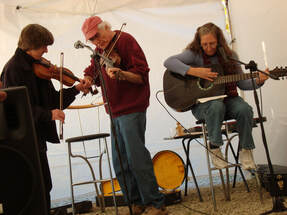 I had asked if I could do a short program at the local school. I had brought along a limberjack in addition to the mandolin. I wanted to demonstrate traditional American culture to the young students. Ursula suggested that we walk over to their neighbor’s home and talk to the kindergarten teacher there. As we approached the house, I realized that I hadn’t grabbed anything to eat and was starting to feel a little light-headed. I figured we wouldn’t stay long. The guys were back at the house preparing dinner. We knocked on the door and were told, in French, that Mama and Papa were in the cellar. I was confused but Ursula led the way to a separate underground wine cellar. Inside were benches and tables and about 8 or ten people drinking wine. When they heard that I was one of the musicians who would be playing at the house concert the next evening, they greeted me enthusiastically and handed me a glass of wine. I started to refuse when Ursula instructed me to take it so I wouldn’t appear rude. I started sipping it cautiously, but they kept toasting and cheering me on. Before I knew what was happening, I had another one in my hand. They wanted me to try their special vintages. I tried to insist on small tastes, but they weren’t having it. They were hosting the American musician and wanted to make a good impression. Then they took me into the smaller room and showed me a wooden cask of cognac from the 19th century and gave me a glass of that. I don’t remember walking back to Ursula and Ed’s but somehow, we made it. Back at the house, Ed and Dick had wondered where we were. They had cheese and crackers and, of course, wine waiting for us. Then we had another glass of wine with dinner and fruit soaked in alcohol for dessert. I can’t believe I never got sick, but I survived without even a hangover the next day. Ed was going to play some fiddle with us at the concert, so we spent that day jamming. After dinner, we did our concert for a very appreciative crowd who all brought snacks, and we had a nice visit with everyone after the show. Between my little bit of French, Dick’s little bit of German, a couple of interpreters who spoke English well and some of the residents who had varying degrees of English, we got to know people and thoroughly enjoyed the night. The next couple of days were spent sightseeing and catching up with our friends. Finally, on our way back to Berlin, we visited an old Roman ruin. I have always been fascinated by history and loved the entire trip. I treasured it as a once in a lifetime opportunity. |
Archives
January 2024
Categories
All
|
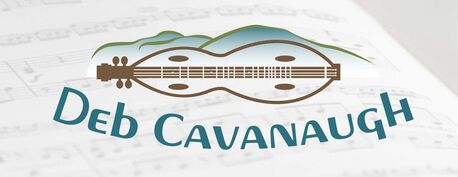
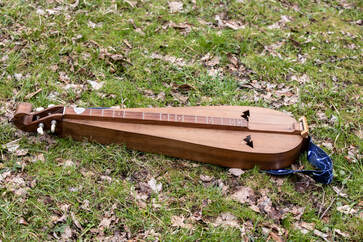
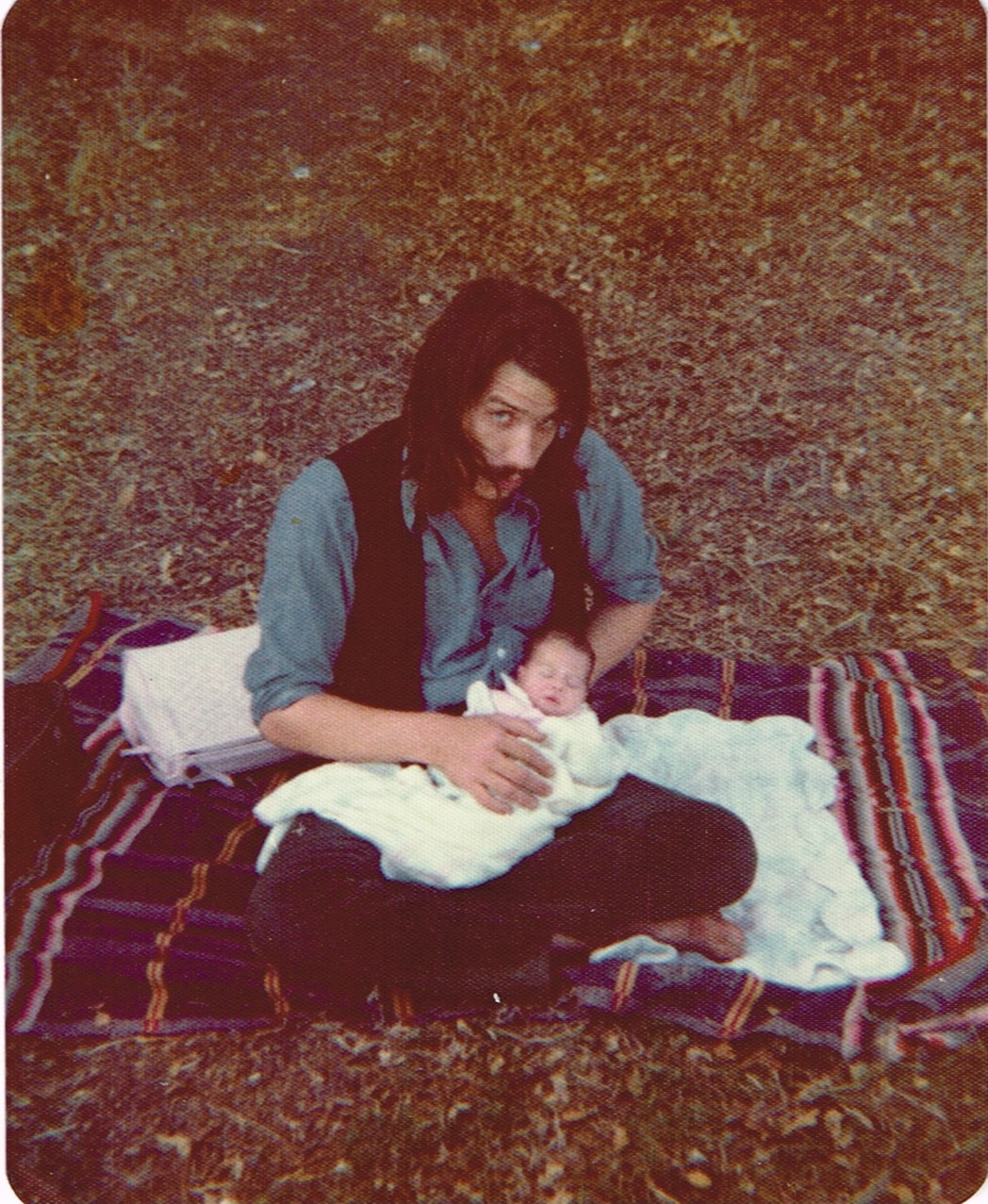
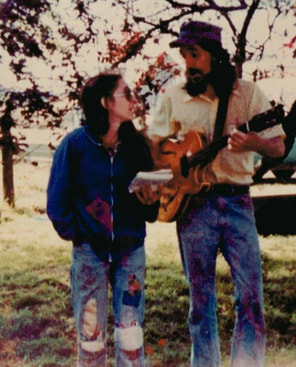
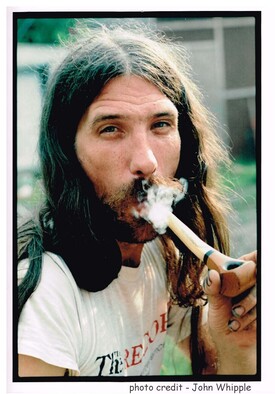
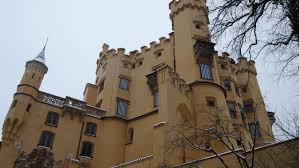
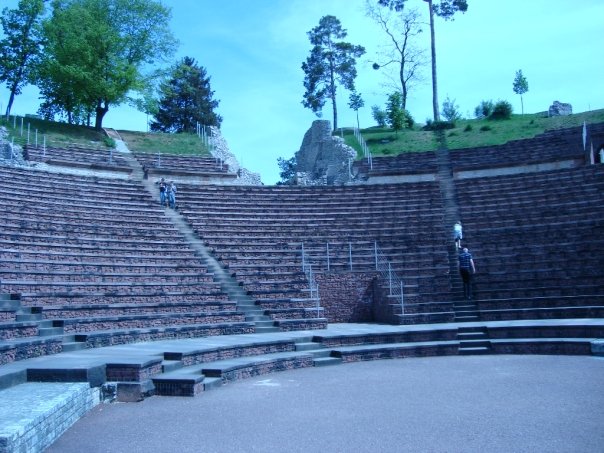
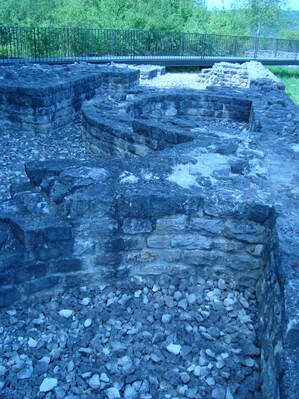
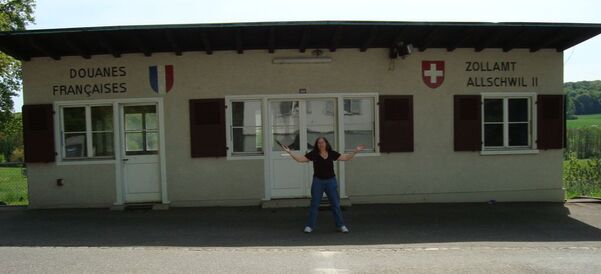
 RSS Feed
RSS Feed